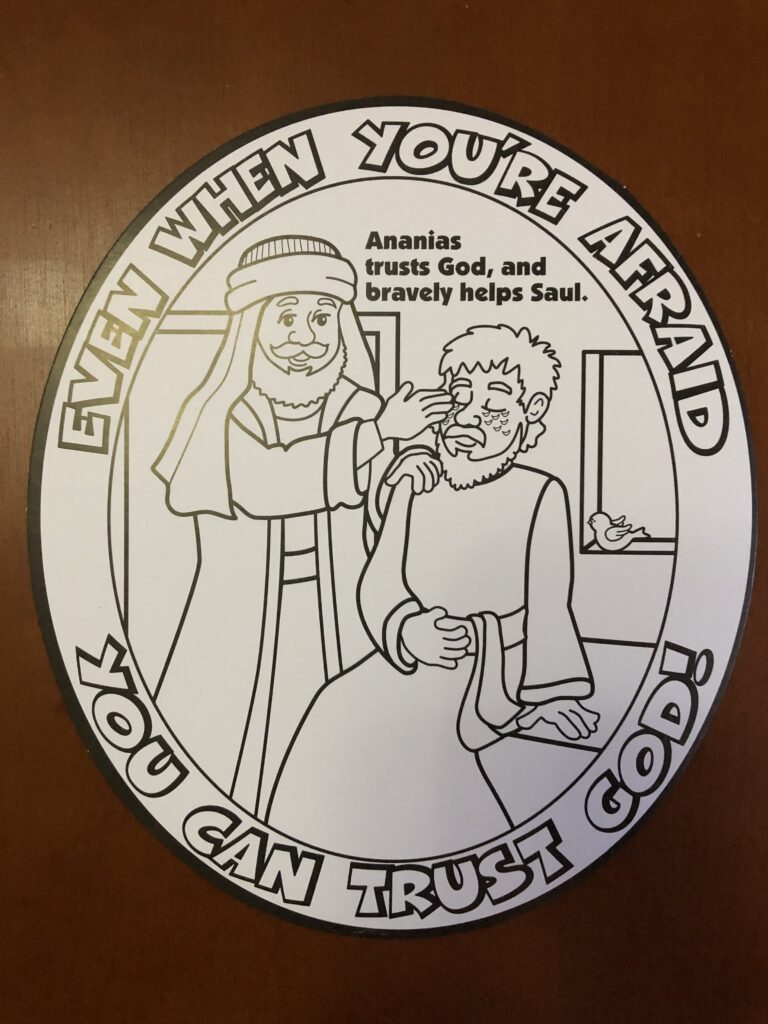
“That your faith should not stand in the wisdom of men, but in the power of God.”
1 Corinthians 2:5
Paul began the first book of Corinthians addressing a problem. He wanted the Believers (Christians) to understand what was important: the preaching of the Gospel Message. Paul later summed up what that Gospel Message is in 1 Corinthians 15:1-4: “… that Christ died for our sins according to the scriptures; And that he was buried, and that he rose again the third day according to the scriptures:”. These are the basic truths of the Gospel Message. Paul emphasized the power that is in that salvation. “For the preaching of the cross is to them that perish foolishness; but unto us which are saved it is the power of God” (1 Corinthians 1:18). See the following to help understand what this verse means:
- preaching means to speak intelligently about the word of the cross
- cross means the whole passion of Christ and the merit of His sufferings and death
- them that perish means exposed to eternal death
- foolishness means foolishness or absurdity
- saved means those who have obtained salvation through Christ and are kept by Him
- power means a person in whom the power of God is manifested
Jesus came to pay the penalty for “them that perish”, taking that eternal death away from any who would only believe. The “power of God” was then revealed in those who believed in Christ’s work on the cross: “the whole passion of Christ and the merit of His sufferings and death”. Each Believer was changed.
There were a couple of groups in that day (and in our day) that could not get past this “foolishness” of the preaching of the cross. “For the Jews require a sign, and the Greeks seek after wisdom” (1 Corinthians 1:22). The Jews were bound in their religious system and the outward showing of the rituals of the Old Testament Law. The Greeks sought after wisdom. Wisdom means “the knowledge of how to regulate one’s relationship with God; wisdom (higher or lower, worldly or spiritual). What did Paul want them to understand? “But we preach Christ crucified, unto the Jews a stumblingblock, and unto the Greeks foolishness” (1 Corinthians 1:23). The message of Christ’s death, burial, and resurrection would not be accepted by the “religious” Jew, for they were bound in their religious system, having to “do” something. The Greeks thought it was just absurd to believe that one must trust in Christ as apposed to intelligently gaining their own salvation, in their own way. Both groups did not understand that it is only through the cross, in the “power of God” (see 1 Corinthians 1:18) that one is saved. Paul further explained this to help them understand: “Because the foolishness of God is wiser than men; and the weakness of God is stronger than men” (1 Corinthians 1:25). Neither the wisdom of man or the strength of a religion can save one. It is only by faith in Jesus and what He accomplished on the cross.
Paul explained this further. “1. And I, brethren, when I came to you, came not with excellency of speech or of wisdom, declaring unto you the testimony of God. 2. For I determined not to know any thing among you, save Jesus Christ, and him crucified” (1 Corinthians 2:1-2). Paul shared “Jesus Christ, and him crucified” which is the “the testimony of God”. Paul did not use fancy teaching or enticement to help them understand the Gospel Message. “4. And my speech and my preaching was not with enticing words of man’s wisdom, but in demonstration of the Spirit and of power: 5. That your faith should not stand in the wisdom of men, but in the power of God” (1 Corinthians 2:4-5). Demonstration means “manifestation”. Because Paul just preached the truth of Christ, a Believer’s (Christian’s) faith was not by man’s reasoning or wisdom. The Spirit of God is manifested, and one can choose to believe. It is then that the power of God is acknowledged in that life. We call this becoming “saved”. All men need the salvation provided by Jesus’ death, burial, and resurrection. However not all will receive it. “For the preaching of the cross is to them that perish foolishness; but unto us which are saved it is the power of God” (1 Corinthians 1:18). The preaching of the cross reveals the only means of salvation. Remember how Paul taught this in Romans. “8. But what saith it? The word is nigh thee, even in thy mouth, and in thy heart: that is, the word of faith, which we preach; 9 That if thou shalt confess with thy mouth the Lord Jesus, and shalt believe in thine heart that God hath raised him from the dead, thou shalt be saved. 10. For with the heart man believeth unto righteousness; and with the mouth confession is made unto salvation. 11. For the scripture saith, Whosoever believeth on him shall not be ashamed. 12. For there is no difference between the Jew and the Greek: for the same Lord over all is rich unto all that call upon him. 13. For whosoever shall call upon the name of the Lord shall be saved” (Romans 10:8-13). Salvation is not of any man – not even Paul. Each person must choose to believe by the correct faith – faith in Jesus’ completed work on the cross.
Does your faith stand in the wisdom of men?
Or
Does you faith stand in the power of God?
Click here to find the way to Salvation by faith.













